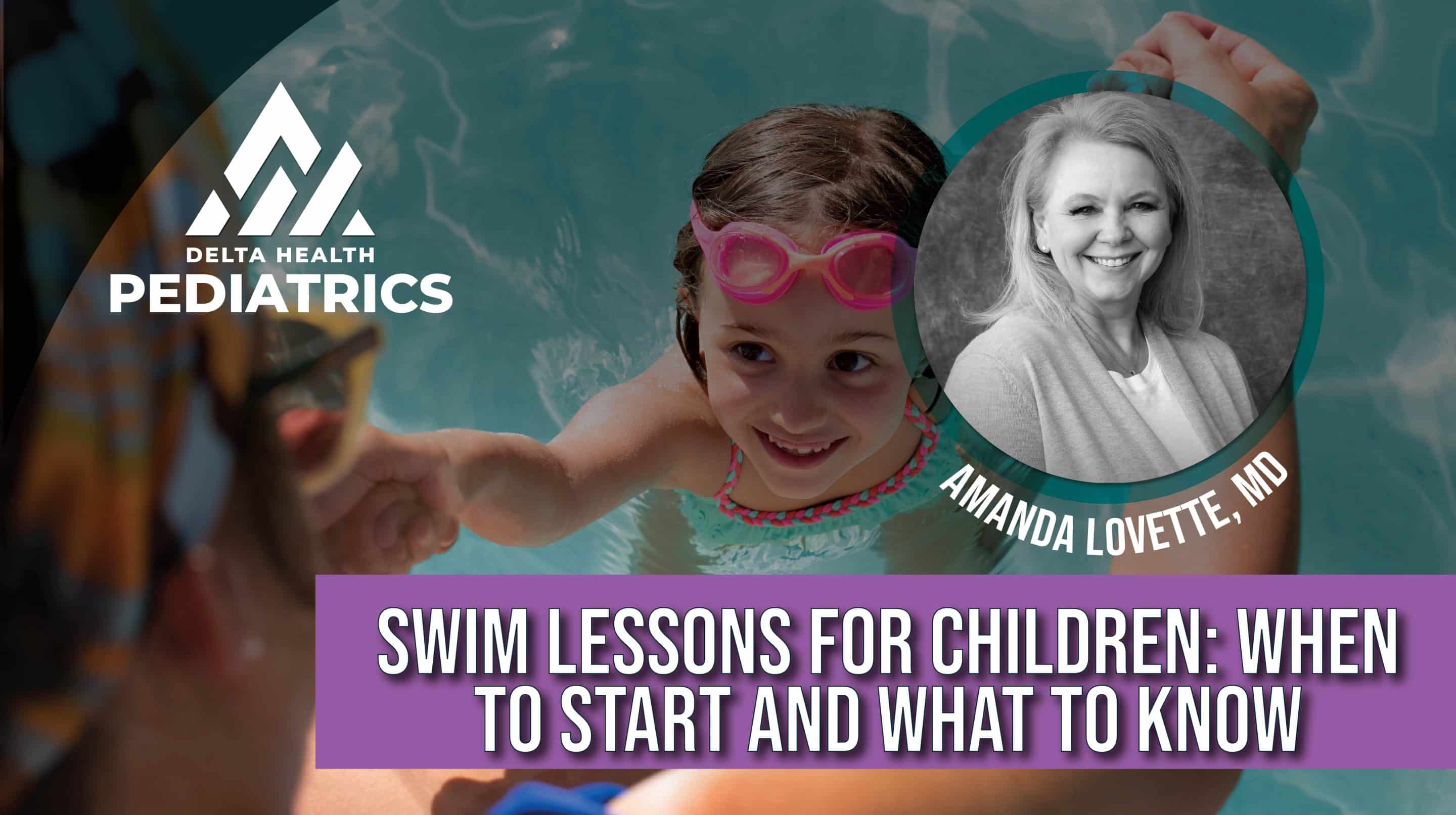Dr. Amanda Lovette, Delta Health Pediatrics
The American Academy of Pediatrics recommends that children start swimming lessons at 1 year of age. Before that, there is no evidence that swim classes decrease the likelihood of drowning. However, they do allow parents and infants to play together and get children used to being in the water. Before you sign your 1-year-old up for lessons, you will want to consider your child’s emotional maturity, and physical development, and comfort in the water to determine if they are ready for swim lessons. You may even wish to sign your child up for a parent-child swim class which can introduce water safety habits and be a fun interactive experience for parents and children.
By 4 years old, most children are ready for swim lessons and can learn essential skills like floating, treading water and getting to an exit. As they get older, children can fine tune these skills and learn actual swim strokes. Do remember, however, that swim lessons do not “drown-proof” children; they teach “water competency” skills that are going to help your child feel comfortable in the water and possibly help them if they get into trouble in the water.
Look for swim lessons with qualified instructors who are trained through a national organization. They should have CPR and First Aid certification as well. They should teach children never to swim without adult supervision, and they should teach your child what to do and how to get out if they find themselves in the water accidentally. There should be multiple sessions to allow your child to practice and slowly improve and get comfortable in the water. Many instructors will let you watch a class to see if you feel it will be a right fit for you and your child before you enroll.
They should provide an age-appropriate environment for the swimming lessons, allowing your child to feel safe and secure. They should have enough instructors and parent participants so that any time your child is in or around the water, there is always an instructor or parent within touching distance. A good swim instruction program will also require child participants to wear snug fitting swimsuits to keep body waste from entering the water, and the instruction pool will be well chlorinated to maintain safety of the water. Last, children are at higher risk of hypothermia, so these pools should be warmed for the comfort and safety of the children.
Here are some tips to keep your child safe in the water, whether she is learning to swim or is a seasoned pro:
- Pay attention. At. All. Times! Drownings can happen quickly, and frequently it takes just a moment for a child to slip into the water – if you are distracted even for just a few moments, you can miss the chance to save a life.
- For young children or children who don’t have strong swimming skills, get in the water with them.
- Avoid using alcohol or drugs when it is your job to supervise the swimmers in the pool or lake. Some people assign a person whose job it is to watch the children in the water, no matter what is going on at the party or the lake event. It is easy to get distracted when the party is in full swing.
- Always put your child in a life jacket when around natural bodies of water like lakes, streams, and oceans. Weak swimmers should use them around pools as well.
- Learn CPR and safe water rescue techniques in case the unimaginable happens. Know how to save a life.
Swimming is a fun and safe recreational activity for families when appropriate precautions are taken. Take the time to follow these recommendations and you and your family will enjoy many hours of fun water activity.
If you are still looking for further tips and support, make sure to join the Healthy Kids Western Slope Facebook Group, or go online to deltahealthco.org/delta-health-pediatrics/. You can also call 970.546.4000.



